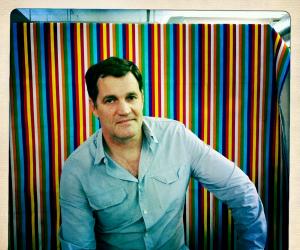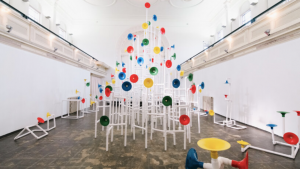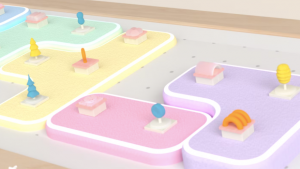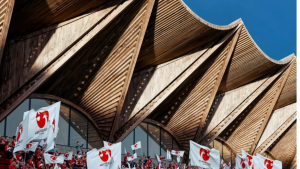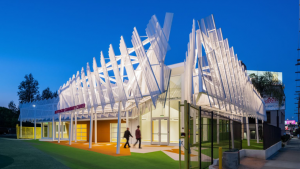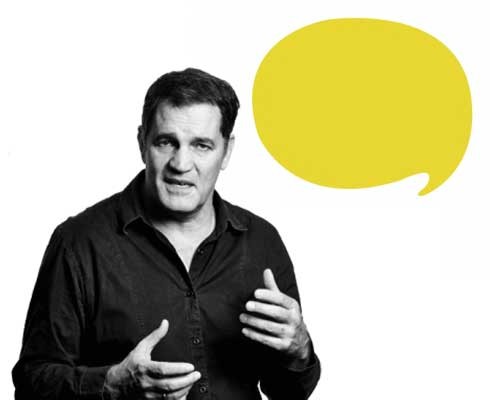
After his presentation at Bright Talks last week on "The agency of the future", we sat down with Ross Chowles (co-founder of The Jupiter Drawing Room Cape Town) to talk about his career in advertising and how the industry has changed.
Looking back to the early days, how did it all begin?
We worked for an agency called Young & Rubicam (myself, Kevin Aspoas and Joanne Thomas) where we were just a tick on a spreadsheet. Everything was at its utmost efficient. So the furniture was that melamine stuff, and you felt that there was no principle to the creativity. You know, if they got the Nazi account they’d be happy [and ask] “What’s the budget?”. It was kind of soulless.
Then along came Graham Warsop who was all about “Let’s spend the money, let’s have outrageous stuff and not worry about the bottom line”. It was about the creativity and that appealed to us. It’s what makes us human.
So when he said he was looking to open an agency in Cape Town we jumped at the chance.
Where did the name The Jupiter Drawing Room come from?
Graham is a romantic and an eccentric. So you add romantic and eccentric and you get the Jupiter Drawing Room, which was the name of a smoking room in a brothel in Paris in a novel by Guy de Maupassant. It’s called La Maison Tellier.
It’s all those things that are illogical to the world of business. Because business is just about money and profit and those things are dehumanising. And actually we sell products to humans.
We don’t sell products to your wallet or your bank balance, we sell it to you.
So that inspired and ignited us.
How did you find the transition from working for someone else to going on your own?
It was amazing. Exciting. Dynamic. Awesome. I wasn’t a person who dreamt of running their own business, I’m not a natural entrepreneur. But when you succeed and it’s your way, you succeed. When you fail and it’s your way, you’ve failed. But when you work for a bigger organisation, it’s the organisation. The organisation is bigger than you. So it’s really the big test, and we had such fun. It was such a jol. And every piece of business, every new ad, was just this adventure.
That said, you only have a business after seven years. Then it’s sustainable, then there’s momentum. For the first seven years we were paying salaries but we were living a very austere life.
What were the difficulties of running a business?
We’re ostensibly not business. We’re not businessmen. We’re ad guys who made a business. But I still think that’s the only recipe.
If you open a restaurant because you love food, you need to learn how to do it so you don’t lose money. But if you open a KFC, you don’t do it because you love food. You get a manual. You’re buying a formula. It’s totally soulless.
The point is, if you start with a passion and you get the mix right… you’ve got to fulfil a need, have the right friends, the right partners, the right time, all the right ingredients… there’s a lot of luck.
The first lesson is don’t spend all your cash quickly. So even if you make big cash you’ve got to reinvest it.
Get better people. Do new ideas. Don’t go out and buy a Porsche. That’s the worst thing you can ever do. That’s where a lot of businesses suffer.
Were there any key influences in your career choice?
In those days advertising was the only job available to a person who could draw but couldn’t spell. So actually my options were very limited. It was perchance. It was a job. My mother was impressed. I was earning money.
Jumping to the present, what inspired you to start Bright?
I think the last four years of the recession. Our industry has become very hectic. It's what I spoke about in my talk earlier. And what I was feeling is not connected to that humanity.
I paint as a Sunday hobby. And I love teaching. Those two things are very rewarding – very human. It’s not profit. It’s not business.
The fundamental thing of most businesses is you’re only there because there’s not a machine or a computer that can do your job.
Companies hate people. As soon as there’s a machine that can do what you can, they want you out. But here [at Bright] it’s all about people. So it’s fulfilling. It’s about rewarding your soul again, topping you up. I’ve been doing advertising and working for 35 years. I just wanted to recharge the battery.
So is this life after advertising?
I don’t know. Certainly not financially. There’s no money in this. But we’ll see.
What has the reaction to this space been?
People love it. But the art lessons are a bit like Capetonians inviting you to dinner. They’ll say, “We must do dinner,” but they’ll never get around to inviting you. People go, “I’d love to come paint,” but to get them to do it is hard. It will take time for me to build up the volume that is needed for this to be really financially rewarding. But those who come here, you see growth.
How do you see the future of advertising and its relation to social media and content marketing?
We’re learning. We’re going through a revolution. We’re finding our way. But social media is so narrow.
People get excited about 10 000 Facebook likes. With a TV ad you’re reaching millions of people.
But in the future when data is cheaper and there are more smart phones, it’s going to be the way.
And the fact that digital opens up the potential to better analytics, tracking the reception of ads – how do you think that is changing the industry?
It’s making people a little more accountable. But it’s also a bad thing because people take less risk.
Do you think it will lead to better advertising?
No. Because people will take less risks. And when you take less risk you make more boring work. It’s predictable. It’s the same as research. Research dumbs advertising down. It doesn’t make you open to doing more imaginative stuff.
The more things are analysed, the more it creates fear. It doesn’t help you. You have to be a bold person. It’s like trying to predict what makes a hit song. It’s hit and miss.
How would you say the marketing landscape has changed since you started out?
Clients earn more than agencies. Clients have lost respect for agencies. Our opinion doesn’t count and that’s because we scammed in awards, creating ads that don’t exist. We became too awards-focussed. It’s a credibility issue.
We used to advise clients. We don’t advise clients any more. Now the people that buy media make more money than we do.
The computer has commoditised what we do. It’s made it cheap and easy. It’s made everybody look like a photographer. Everyone can Photoshop. Everyone can make it look nice. But computers can’t replace artists and musicians and writers.
So where to from here?
From a creative point of view... because of digital and the fact that the consumer can contribute to it, your idea can mutate and evolve and grow. That’s what’s awesome. So that’s exciting. And what’s exciting is we don’t know what’s around the corner.
What do you know now that you wish you’d know then?
Everything you want is on the other side of fear.
When you’re scared, that’s when you know you’re doing something cool. But I wish I’d understood that when I was younger.
What is your ultimate goal – to do this full time? Or do you always want to stay part of the advertising industry?
I don’t know. My ultimate goal is to paint the perfect painting. If I can paint the sublime painting, it will neutralise all the negativity in my life.
And I love teaching. So teaching more is the ultimate goal. Teaching more would be the best thing.
Click here to read about Chowles' prediction of what the agency of the future looks like.

